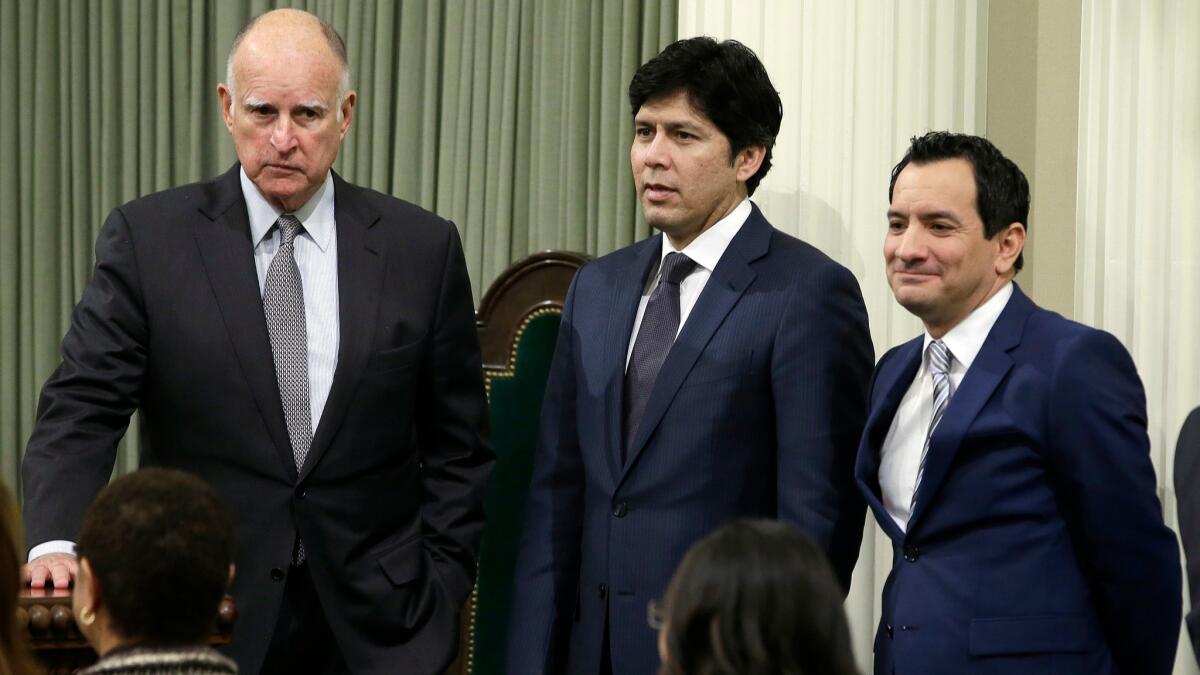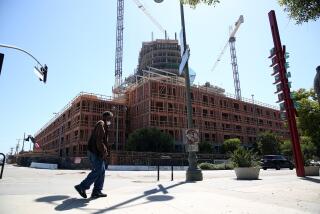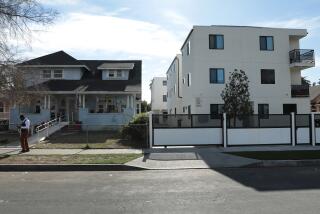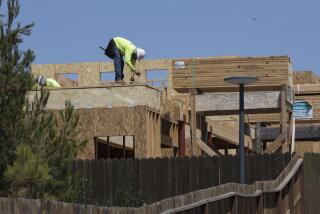What good is affordable housing if the people who build aren’t paid decently?

To the editor: Like climate change, construction prevailing wage standards have been studied and an academic consensus exists, but myths persist. (“Affordable housing at an impasse,” editorial, July 22)
Peer-reviewed economists have found that prevailing wages produce more local, middle-class job opportunities and less spending on fuels, materials and public assistance for blue-collar construction workers. They do not significantly raise total development budgets.
In California, labor makes up just 20% of total construction project costs. Any savings from exploitative working conditions are offset by lower productivity on the job site.
In its editorial, The Times suggests that there is no public interest in setting wage rates on affordable housing projects. But since the state provides hundreds of millions in low-income housing subsidies each year, and Gov. Jerry Brown’s housing bill provides private developers with state mandated exemptions from public zoning and environmental standards, The Times’ opinion is simply not supported by the facts.
Absent a prevailing wage requirement, Brown’s proposal would undermine the quality of these projects and increase the ranks of working Californians who can’t afford to live in the region where they work. Worse, it would deprive our communities of the substantial benefits that prevailing wages have proved to deliver.
Kevin Duncan, Pueblo, Colo.
The writer is a professor of economics at Colorado State University-Pueblo.
Follow the Opinion section on Twitter @latimesopinion and Facebook
More to Read
A cure for the common opinion
Get thought-provoking perspectives with our weekly newsletter.
You may occasionally receive promotional content from the Los Angeles Times.






